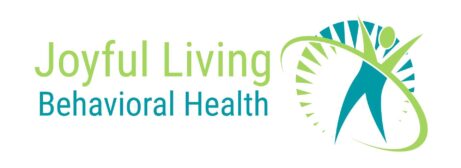Mindfulness-Based Therapy in Eugene, OR

Mindfulness-Based Cognitive Therapy (MBCT) is an evidence-based approach created to help individuals in Eugene, OR, who struggle with recurring depression, persistent anxiety, and other emotional challenges. This powerful therapy blends cognitive behavioral techniques with mindfulness strategies such as meditation and focused breathing. The result is a structured program that builds self-awareness and fosters a healthier relationship with thoughts and emotions.
At Joyful Living Behavioral Therapy, we offer mindfulness-based therapy as part of our comprehensive approach to emotional wellness. Our compassionate team of licensed therapists helps individuals develop lasting skills that reduce the intensity of negative moods and build resilience.
What Does MBCT Help Treat?
Mindfulness-based therapy can help individuals better manage a wide range of mental health and emotional concerns, including:
- Persistent depressionand chronic anxiety
- Disordered eatingand food-related concerns
- Ongoing low mood and recurring negative thought patterns
- Physical symptoms such as fatigue, tension, and lack of energy
- Symptoms associated with psychosis and related experiences
If you can relate to any of the challenges listed above, mindfulness-based therapy may be the right path for you. MBCT teaches individuals to observe their thoughts without judgment, creating space between emotions and automatic reactions. Over time, this separation empowers clients to respond thoughtfully rather than impulsively. MBCT also focuses on cultivating a deeper awareness of the present moment, which is a powerful tool in reducing emotional suffering.
How Mindfulness-Based Cognitive Therapy Works
Mindfulness-Based Cognitive Therapy draws from both Eastern contemplative practices and Western psychology. The core goal is to break the cycle of rumination that often leads to recurring episodes of depression or anxiety. By teaching individuals how to observe their mental patterns and stay anchored in the present, MBCT helps reduce the impact of negative thinking.
Participants in MBCT programs learn how to bring mindful awareness to everyday activities, thoughts, and emotions. This practice fosters greater acceptance and reduces the tendency to resist or suppress difficult feelings. Over time, this can lead to improved emotional regulation, increased self-compassion, and reduced emotional reactivity.
Mindfulness-Based Cognitive Therapy: Backed by Research
Mindfulness-based therapy has been extensively studied and is supported by a growing body of research. Evidence indicates that MBCT may reduce the risk of depressive relapse by up to 50% in individuals who have experienced multiple episodes of depression. For many people, this form of therapy becomes a life-changing tool for preventing the return of symptoms and improving long-term mental health.
MBCT also supports physical well-being. Studies have shown that mindfulness-based practices can help lower stress levels, improve sleep, and reduce physical symptoms associated with anxiety and depression.
Common Questions Clients Have About MBCT
It’s normal to have questions before starting any new form of therapy, especially one that combines mindfulness and cognitive techniques. At Joyful Living in Eugene, we want clients to feel comfortable and confident as they begin their journey with mindfulness-based therapy. Below are some of the most common questions people ask and how this technique can support long-term healing.
What is the main goal of MBCT?
The primary goal of Mindfulness-Based Cognitive Therapy is to help individuals break free from cycles of negative thinking that fuel depression and anxiety. By learning to observe thoughts without judgment, clients gain greater control over their emotional responses.
Who is a good candidate for mindfulness-based therapy?
MBCT is especially helpful for people with recurring depression, persistent anxiety, or negative thought patterns that are difficult to manage. It can also support those experiencing stress, disordered eating, or physical symptoms linked to emotional struggles.
What happens during a mindfulness-based therapy session?
Sessions typically include guided mindfulness practices, such as meditation and breathing exercises, along with cognitive techniques to reframe unhelpful thoughts. Therapists also teach clients how to bring mindfulness into daily activities.
How long does MBCT take to be effective?
Many clients begin noticing benefits within a few weeks of consistent practice. Lasting results often develop over the course of an eight-week program, though some choose ongoing sessions for continued support.
Is mindfulness-based therapy evidence-based?
Yes. MBCT is backed by decades of research and has been shown to reduce depressive relapse rates and improve emotional resilience. It is widely recognized as an effective treatment for mood and anxiety disorders.
Do you offer mindfulness-based therapy online?
Yes. At Joyful Living, we provide both in-person and telehealth sessions, making mindfulness-based therapy in Eugene, OR accessible to individuals throughout Oregon.
Get Support from Compassionate Experts at Joyful Living
At Joyful Living, we understand how challenging it can be to live with recurring emotional distress. Our team of experienced, licensed therapists in Eugene, OR, provides a warm and welcoming space for you to explore MBCT in a way that feels supportive and personalized. We work closely with each client to identify goals, teach practical tools, and guide the healing process at a pace that’s right for them.
Whether you’re new to mindfulness or already practice meditation, we tailor each session to fit your needs. Our therapists are passionate about helping clients regain control, improve well-being, and create lasting emotional resilience.
Call Today: Start Experiencing the Power of Mindfulness
If you or someone you care about could benefit from mindfulness-based therapy in Eugene, OR, we’re here to help. Contact Joyful Living today to schedule a free consultation. Our caring team is ready to support you on your journey toward a more balanced and fulfilling life.
